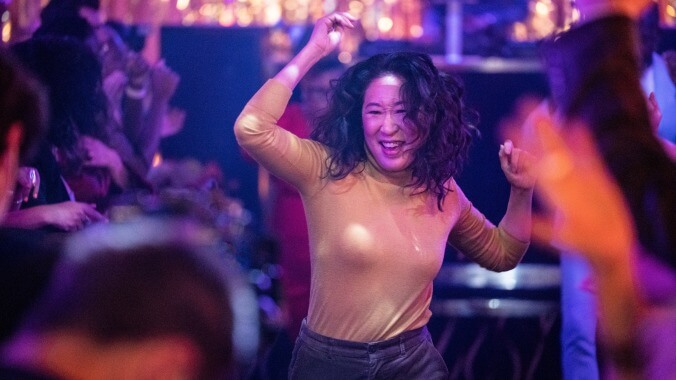Sandra Oh suggested an even more depressing Killing Eve ending, apparently
The BBC America spy show has come under serious fan critique for its bloody dismount

[Note: This article contains spoilers for the series finale of Killing Eve.]
Last month’s series finale for BBC America’s Killing Eve was not received, let’s say, well by fans of the four-season spy drama, with many accusing the show of falling back on tired “Bury Your Gays” tropes in its handling of the final resolution of the years-long game of cat and somewhat more psychotic cat between Sandra Oh’s Eve and Jodie Comer’s Villanelle. (Especially frustrating for fans, in that the show’s source material, by author Luke Jennings—who’s also expressed his unhappiness with the ending—gave its central pair a far happier conclusion.)
Now series star Oh has opened up a bit about that finale, including the revelation, which she granted to Deadline, that she’d been pushing for an even grimmer ending, in which her character, instead of Comer’s, ended up dead at the bottom of the Thames.
“You should kill my character,” Oh reportedly told series showrunner Laura Neal, as the show’s ending was tinkered with again and again. “I thought that would be the strongest and the most interesting [ending].”
“Eve was starting to get into, like, a nihilistic place,” Oh explained, “And we’re like, ‘Let’s just continue that line and go straight into it.’” But the writers ultimately declined the Emmy winner’s offer of simulated self-sacrifice. “They came to me, and they said, ‘We can’t do it. We need to change it… Eve needs to live.’”
Neal herself has talked a bit about the ending at this point, including the notion that Eve, who at least starts the series as its introductory viewpoint character into its world of sexy professional murder, might be the one to go. But, in Neal’s words (per an interview with TVLine), “It just didn’t feel very truthful. It felt right that Eve has this rebirth and is allowed to go on and forge a new life for herself with everything that Villanelle has given her. And it also felt right for Villanelle’s story to end as it does.”
Neal has also laid out the basic rationale for killing at least one of the duo off in the show’s closing moments. “We certainly discussed an ending where they both live happily ever after. But our problem was that we couldn’t really imagine them doing so.” She makes the argument that Villanelle’s death is about as good an ending as an international super-murderer might hope to get: “There’s a sense,” Neal explains, “That she doesn’t really die. She just sort of ascends to a higher place.” (Whether that “sense” came through for the show’s still very angry fans, presented as they were with the reality of a beloved character “ascending” to the bottom of a river with a bunch of bullets in her, is an, uh, open question at this point.)